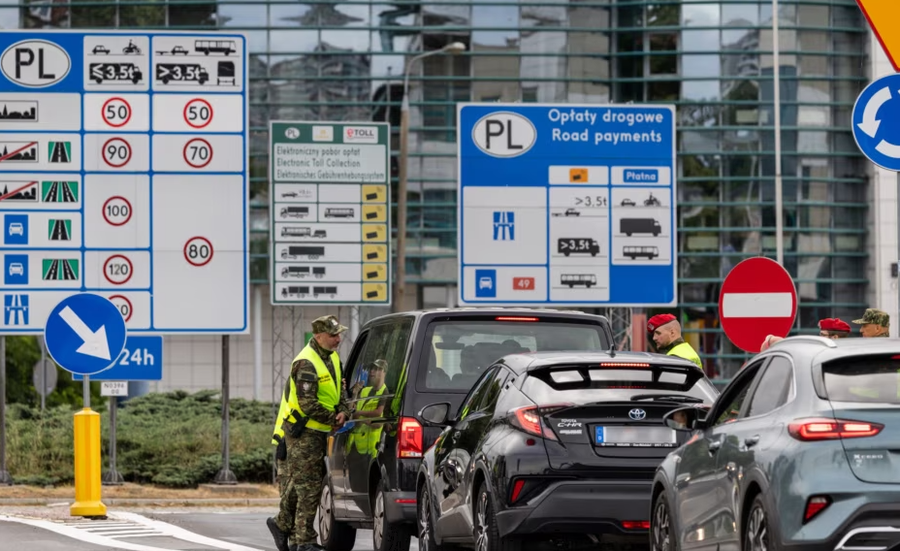
Poland on Monday resumed border controls with Germany and Lithuania, following the example of similar measures taken by Germany earlier, aimed at deterring asylum seekers.
Polish Prime Minister Donald Tusk, whose government survived a recent no-confidence vote in parliament, warned of these restrictions last week.
The pressure increased after far-right groups in Poland accused Germany of transporting migrants to Polish territory after their arrival in Western Europe.
The checks, which began on Sunday night, will initially last 30 days, but authorities may extend them further if necessary, Poland's Interior Ministry said.
"Illegal migration is simply a crime," Polish Interior Minister Tomasz Siemoniak said during a press conference.
Poland's border with Lithuania, which stretches 104 kilometers, will have controls at 13 crossing points. Meanwhile, the border with Germany, which is 467 kilometers long, will have controls at 52 points.
Lithuanian authorities said on Monday they are ready to deal with possible traffic jams at the Polish border.
"If increased traffic is created, we will start managing the movement... to minimize disruptions and make checks as fast as possible," Antanas Montvydas, deputy head of the Lithuanian State Border Guard Service, told Lithuanian radio.
After taking office in May, German Chancellor Friedrich Merz, who made tougher migration policies a pillar of his election campaign, ordered increased police presence at the border and said some asylum seekers would be barred from entering Germany.
Last week, Merz said that Poland and Germany are cooperating closely to ensure that Germany's border controls cause as few problems and delays as possible.
"Protecting borders against irregular migration is an interest that Germany has, Poland has and our European neighbors share with us," Stefan Kornelius, Merz's spokesman, said on Monday.
"We don't want permanent border controls," he added.
The European Union has a visa-free travel zone, called Schengen, which allows citizens of most member countries to travel freely across borders.
Switzerland is also part of the Schengen area, even though it is not a member of the EU.
According to the EU, member states are allowed to temporarily reintroduce border controls in the event of a serious threat, such as internal security.
By rule, border controls should be implemented as a last resort in exceptional situations and should be limited in time./ REL (A2 Televizion)











